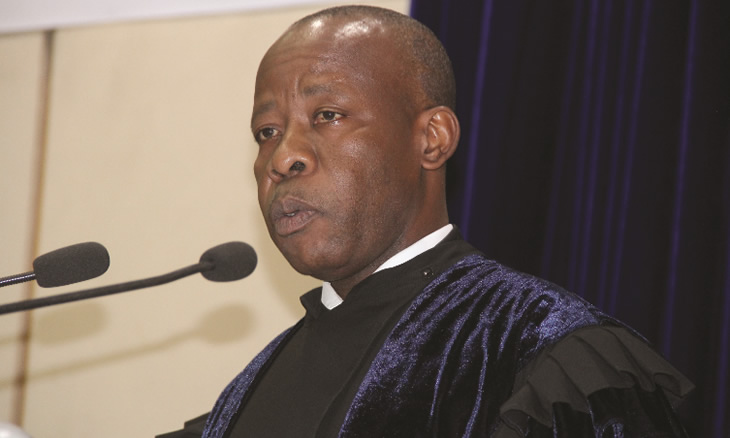Portuguese experts train 252 Mozambican doctors in diabetes diagnosis, treatment
Chief Justice proposes regulation of community courts in Mozambique

Photo: O País
Mozambique’s Supreme Court judge Chief Justice Adelino Muchanga says regulating the functioning of the community courts in Mozambique so that they use the same criteria as formal courts is a matter of urgency.
Muchanga is advocating a new approach to complementarity between formal and community justice, and the creation and approval of legal instruments governing the same.
“In Zambézia province, [formal justice] coverage does not allow us to reach all districts. Ideally we should be in all of them. But, more than that, I think we should also think about administrative posts and villages,” he said, adding that, given the pace of growth of the judicial network, “the best approach is complementarity between formal and community justice”.
However, it is encouraging to know that community courts function in almost all districts, Muchanga told a press conference last week in the city of Quelimane, as part of a monitoring exercise to consolidate a culture of accountability in protected institutions.
Muchanga so far considers the need for regulation only a finding, stressing that the idea requires further articulation within the bodies competent for the purpose.
A link between formal and community courts would help reach the judiciary’s goal of bringing justice closer to the citizen. “They (community courts) exist and work, but I think it would be advisable to immediately proceed to regulating these courts, as part of legal reform,” Muchanga said.
The other challenge in Zambézia is widespread juvenile crime. “In all the districts we visited, we found that there were many children who practised acts which qualify as crimes.”
Some children are forced into criminality by adults, but cannot be deprived of their freedom because they are below the age of criminal responsibility.
“What is worrying is that we have all sorts of crimes, even homicides. Most of the cases are shoplifting, and it appears that some children know that they are not subject to custodial penalties, and they agree to be used by adults who serve as instructors. But they are identified and later released, even though they are mostly repeat offenders,” he explained.
Muchanga, quoted by AIM, advocated crime prevention measures and tackling overcrowding in penitentiary establishments, which was not, he said, the result of hold-ups in the administration of justice. “If we look at the numbers, we find that there are almost the same number of detainees entering the prison as prisoners being released. This means that, for the most part, prisoners are serving correctional sentences.”
It also means that there remains a great challenge of effectively applying alternative sentences to imprisonment so that jail sentences are not applied for minor crimes.
According to Muchanga, the law itself fixes fines so high that, presented with the option, many prefer to serve time instead paying fines.
“It may seem ridiculous, but even if we are talking only about five percent of the national minimum wage, for a good part of our population these amounts are extremely high,” the chief justice said, adding that in these circumstances, the judge in the case does not have much alternative.












Leave a Reply
Be the First to Comment!
You must be logged in to post a comment.
You must be logged in to post a comment.